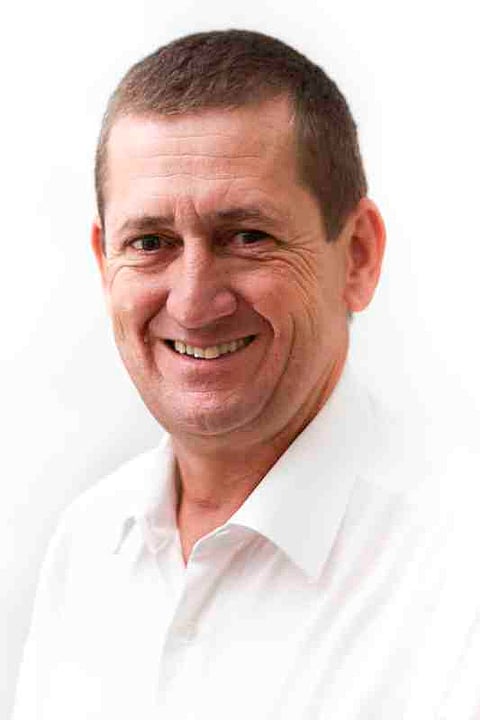Sies BP, sies! Cynically exploiting SA’s poor while claiming to do good
Mining entrepreneur Bernard Swanepoel has been privately fuming about oil major BP's "Ads to Bags" billboard campaign. This, he says, is a perfect example of a multinational exploiting the poor in the name of "doing good" . I asked him to go public and enlighten the rest of us. He has. Here it is…
By Bernard Swanepoel*
In his book Creating A World Without Poverty, Muhammed Yunus is dismissive, if not downright scathing of Corporate Social Investment (CSI). He says: "The concept of socially responsible business is built on good intentions. But some corporate leaders misuse the concept to produce selfish benefits for their companies. Their philosophy seems to be: Make as much money as you can, even if you exploit the poor to do so – but then donate a tiny portion of the profits for social causes or create a foundation to do things that will promote your business interests. And then be sure to publicize how generous you are!"
I couldn't help thinking of BP's much publicized 'Ads to Bags' campaign when I re-read this extract. Its campaign is a perfect example of what Prof Yunus warns against. It is offensive at so many levels that it's hard to decide where to start.
Is BP they trying to be 'green'? It is, after all, claiming to convert environmentally problematic billboard advertising into useful schoolbags? Perhaps it is about helping thousands of school kids get a bag they would otherwise never had? Could it be this initiative is really about creating jobs for those making the bags?
Or could it possibly be that this is a very typical example of a big corporate doing an awful amount of bad in the name of doing good?
But first, let me declare my interest. At To The Point, my colleagues and I are spending quite a bit of time and money trying to help create a sustainable business in this overlap area of up-cycling vinyl ad banners. The operation, Waste To Wow, aims to create "decent" jobs and, preferably, self-employment through transforming billboards into useful products. A visit to the website will give you a sense of what is and can be done. We were approached by BP. So have been exposed to the real objective of this campaign.
BP's 'Ads to Bags' project isn't about being 'green'. In reality, it flies in the face of the multinational's worldwide efforts to position itself as being environmentally responsible. It is illogical to deliberately create an environmental problem (vinyl ad banners) in order to demonstrate your ability to solve it (Ads to Bags). That is like creating and oil spill in the Gulf of Mexico to show how responsible you are afterwards when settling the claims!
Doesn't it help a few thousand poor kids? It's a pity BP's executives did not watch Ernesto Sirolli's presentation on TED which tells us: 'Want to help some one? Shut up and listen'.
Did BP ask the kids, or does it just know what these kids need and want? The quality of the bags we saw was so bad I am sure by now more than half of what was delivered with such fanfare and publicity just a few weeks ago are no longer usable. The shocking quality is not surprising. BP insisted on imposing a 'Chinese sweat shop' manufacturing model: R50 a bag for manufacturing – take it or leave it!
There are fortunately, or perhaps unfortunately, enough community based job creation projects desperate for whatever paid work comes their way. Even at R50 a bag. The ladies who make the bags get a meal, perhaps even a tiny stipend. The volunteers work for free anyway. So where's the problem?
Much better to ask what in this model is sustainable?
This model, the BP-model, depends on being able to exploit unemployed poor people supported by unpaid do-gooders who want to help them. And, most importantly, the rest of us drinking the BP public relations Kool-Aid so that we feel good about the next tank of petrol we buy at one of its service stations.
Big corporates like BP take business decision based on budgets and numbers. Even with the facts being kept from the public, we can make some pretty good assumptions of how the project was "sold" internally.
Let's assume 10 000 bags were donated:
Manufacturing cost at R50/bag R 500 000
Cost of national publicity R6 000 000
CSI expenses in-house R1 500 000
Total cost of project: R8 000 000
Which works out to R800 for each bag donated
If BP only made 5000 bags, which seems closer to the mark, the total assumed cost would only be R 250 000 less with the cost per bag jumping to R 1 550 per bag.
This is absurd. It is clearly not about the banners, nor the bags, nor the kids, nor the poor.
Sies BP, sies!
* Bernard Swanepoel is a founding director of To The Point Growth Specialists, a mining consultancy based in Johannesburg. He built Harmony Gold from a small single mine into one of the world's biggest gold producers. Since leaving Harmony in 2007, he has applied the same entrepreneurial skills to Village Main Reef, transforming the cash shell into a R750m gold and platinum business.

